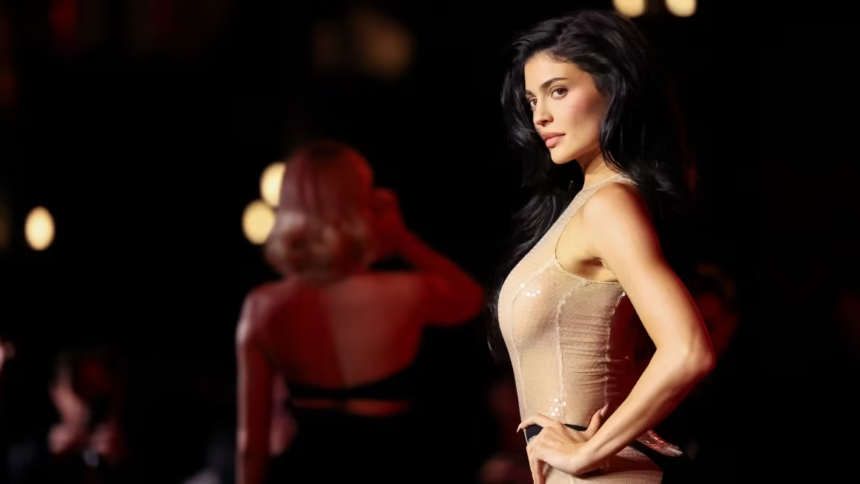A New Era of Transparency in Beauty
Gone are the days when celebrities denied or evaded questions about their aesthetic enhancements. In the past, the mere suggestion of undergoing plastic surgery was considered taboo, even offensive. Today, the conversation has dramatically shifted. High-profile figures are not only embracing cosmetic procedures but also publicly acknowledging their surgeons, sharing their journeys, and even turning these transformations into brand opportunities.
This change reflects a broader cultural shift—one driven by social media, increased acceptance of body autonomy, and the democratization of beauty standards. Cosmetic surgery has transitioned from a secretive indulgence of the elite to a normalized aspect of personal care and identity expression.
A History of Denial and Secrecy
For decades, Hollywood operated under a veil of illusion. Youthful faces that never aged and bodies that defied nature were explained away with vague references to “good genes,” “hydration,” or “facials.” Rumors swirled, but confessions were rare. Stars feared public judgment, industry backlash, and the stigma of being seen as inauthentic.
Tabloids thrived on “before and after” comparisons, often framing any aesthetic change as deceptive or desperate. The industry standard was to pretend that beauty was effortless and natural, creating an impossible benchmark for the average fan. This culture of secrecy only deepened the unrealistic ideals upheld by mainstream media.
The Shift Toward Openness
The turning point began in the mid-2010s with the rise of influencer culture and the unfiltered nature of social media platforms like Instagram, YouTube, and TikTok. Unlike traditional celebrities, influencers built their brand on transparency. Many began documenting their cosmetic procedures—fillers, Botox, breast augmentations, and more—as part of their content. This candor resonated with younger audiences, fostering an environment of acceptance and curiosity rather than judgment.
Soon, traditional celebrities followed suit. Reality TV personalities like the Kardashians led the charge by openly discussing their cosmetic decisions. Kylie Jenner, once accused of secretly altering her appearance, admitted to lip fillers and eventually launched a billion-dollar beauty empire based on her look. Stars like Chrissy Teigen, Cardi B, and even A-listers like Jane Fonda and Dolly Parton have spoken openly about going under the knife.
Surgeons in the Spotlight
One of the most significant cultural developments is the rise of the celebrity plastic surgeon. Once reserved for hush-hush house calls and NDA-signed office visits, cosmetic doctors are now building their brands just like the clients they serve. Instagram accounts like @drmiami, @simonourianmd1, and @drjosephnyc regularly showcase before-and-after images, livestream surgeries, and post patient testimonials.
These surgeons are gaining their own followings, turning cosmetic medicine into a form of digital entertainment. Some have even become influencers in their own right, collaborating with beauty brands, launching skincare lines, and appearing on reality shows.
This transparency has a dual effect: it humanizes the surgical process and elevates the standard of care. Consumers now shop for surgeons the way they might choose a hairstylist—researching credentials, reading reviews, and analyzing Instagram portfolios.
Social Media’s Double-Edged Sword
While transparency is commendable, it also raises concerns. The normalization of surgical enhancements, especially among young people, has sparked debates about body image, mental health, and social pressure.
Apps like TikTok have contributed to a trend known as “Snapchat Dysmorphia,” where users aspire to look like heavily filtered versions of themselves. Cosmetic consultations often involve reference photos not of celebrities, but of edited selfies. As procedures become more common, there is a growing fear that natural aging and unique features are being erased in favor of homogeneity.
Celebrities, while now open about their surgeries, still wield immense influence. When stars with personal trainers, nutritionists, and top-tier surgeons casually announce their latest “tweak,” it may set unattainable standards for everyday people.
Destigmatizing or Commercializing?
The line between empowerment and exploitation is thin. Many applaud the newfound openness as a step toward body autonomy. People can now take control of their appearance without shame or secrecy. On the flip side, some argue that the glamorization of surgery fuels a billion-dollar industry built on insecurity.
In recent years, the trend has evolved into a form of aesthetic branding. Procedures are marketed as lifestyle choices rather than medical interventions. Terms like “mommy makeover,” “preventative Botox,” and “liquid facelift” soften the reality of surgery, making it sound more like self-care than clinical alteration.
The Future of Cosmetic Culture
As technology advances, cosmetic procedures are becoming safer, more accessible, and less invasive. Non-surgical options like fillers, threads, and laser treatments are gaining popularity, offering temporary results with minimal downtime. The affordability of certain procedures has also opened the door for middle-class consumers to participate in what was once an elite pursuit.
Moreover, the concept of beauty is expanding. People from diverse backgrounds are embracing enhancements that reflect their unique cultural features rather than conforming to Western ideals. Cosmetic surgery is no longer just about looking “perfect”—it’s about feeling empowered, confident, and self-defined.
Conclusion: Beauty in the Age of Ownership
In today’s media-saturated world, cosmetic surgery is no longer cloaked in shame or mystery. Celebrities have helped usher in a new era where owning one’s beauty journey—scalpel and all—is not just accepted but celebrated. With transparency comes empowerment, but also responsibility.
As stars continue to share their transformations, the conversation must also evolve to include education, ethics, and emotional well-being. Cosmetic surgery may enhance appearances, but true beauty still lies in authenticity, informed choices, and confidence from within.






